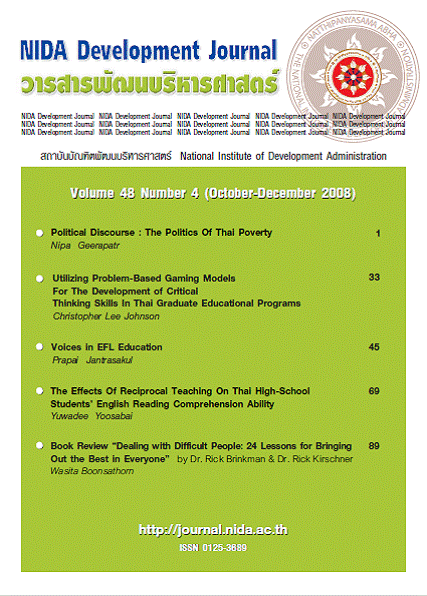Utilizing Problem-Based Gaming Models For The Development Of Critical Thinking Skills In Thai Graduate Educational Programs
Abstract
There exists a great need in Thailand today for young professionals who have the ability to critically evaluate current global threats and opportunities in order to provide an appropriate response. In order to do this they must have certain cognitive (thinking) skills, which they currently are lacking due to Thailand's educational paradigm. The learning model employed by the majority of educational institutions from primary to university is based on the “information transfer” model. If our goal is to create critical thinkers than we must provide a framework and skill sets, which can be taught through guided discovery sessions. Through the use of problem-based gaming (PBG) learners will be able to acquire the critical abilities as well as practice them in a contextualize manner that will insure their transfer to other learning tasks that requiring similar skills. In PBG, emphasis is placed on authentic learning tasks, experiential learning and collaboration. By allowing game players to generate hypothesis, PBG creatively test their outcome in the game world. This paper examines role-play gaming systems and their use in the development of problem-solving and critical thinking skills in Thai graduate educational programs.





